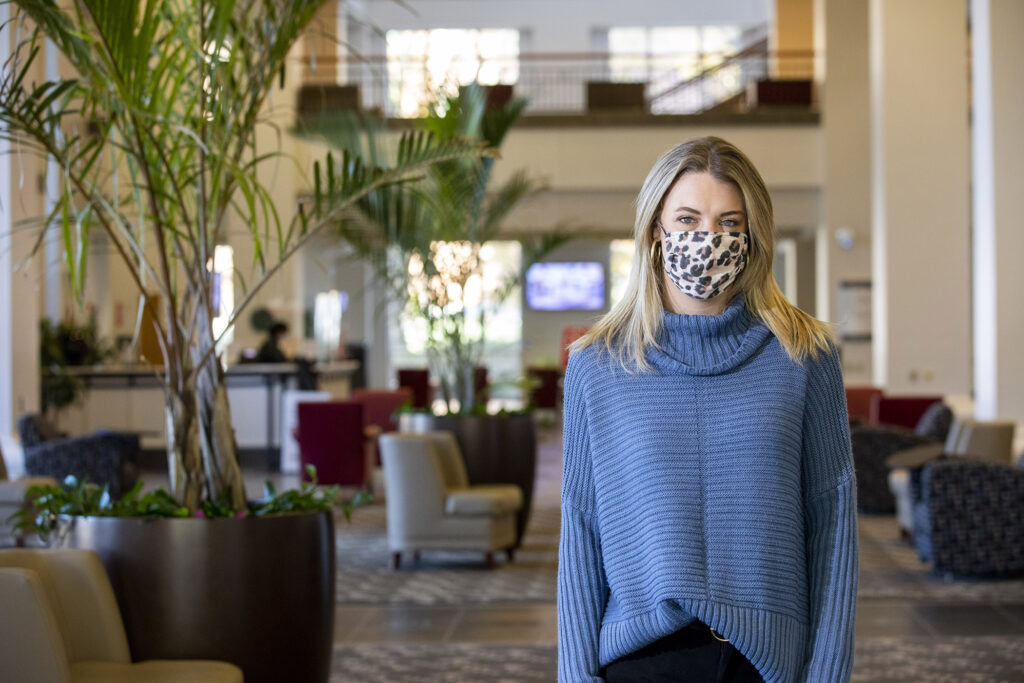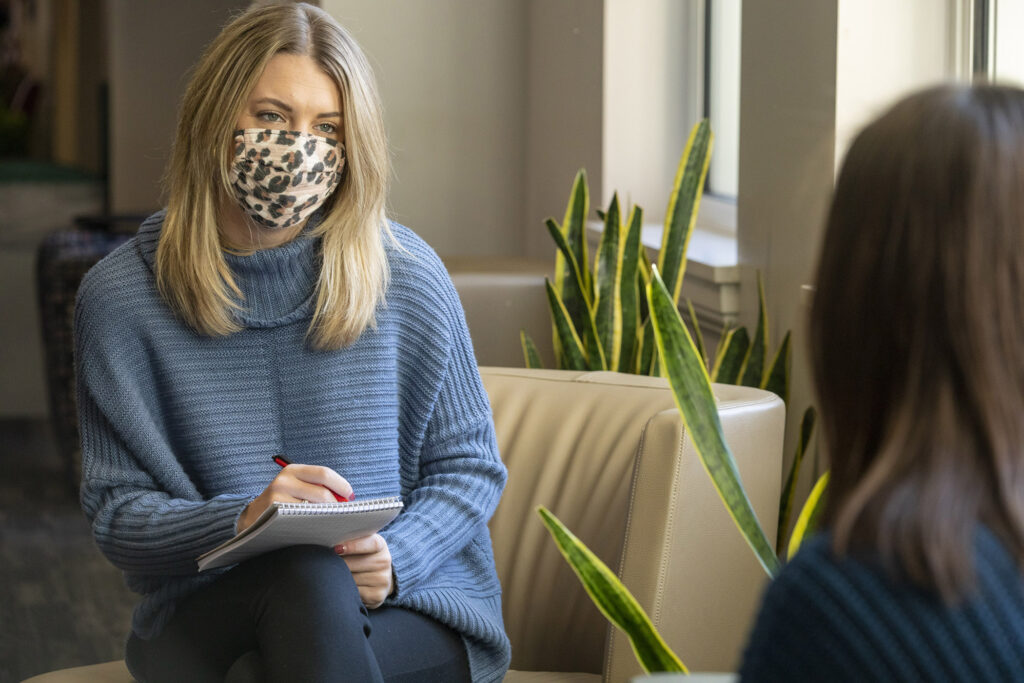Ansley Long can handle pretty much any student problem, from financial and mental health issues to cases of slipping grades or students who are having trouble getting involved on campus.
“There’s nothing we can’t help with,” said Long, a case manager at Student Care and Outreach in the Division of Student Affairs located within the Tate Student Center. If Long can’t help, she’ll find someone who can.
Since the pandemic hit, they’ve added COVID-related issues to their workload as more students have been showing up in need of assistance via DawgCheck, UGA’s COVID report and information system. “We’re able to provide them support for those needs, whatever that may be, from ‘I don’t even know where to go get a test’ to ‘I’m going to miss some class and I need someone to reach out to my faculty for me,’” said Long.
One of the first issues to hit during the pandemic was a rush of students with COVID-related financial problems. “Every single time a student applied for emergency funding, we talked to every one – reaching out to see if there were additional resources we could connect them with,” said Long. “If they needed money for food, we connected them with the food pantry so they could use their money to cover rent instead of groceries.”

As August rolled around, the focus shifted to mental and physical health. “Some students were getting COVID or were in isolation. And so not only were they physically ill, but they were isolated from their friends. What did their mental health look like? What did their academics look like?” she said. “We use a holistic approach to make sure the students have everything they need.”
The job can be heavy at times, but Long’s got it handled. She is a big advocate for therapy and got her own therapist the first week on the job. “I can’t tell students to go see a therapist if I’m not going to see one. I’m a super big proponent of it and I’m not afraid to talk about that. It’s important that everyone get the care that they need. Sometimes it just takes a little extra support.”

And she gets to see her work making tangible differences in students’ lives. “In this job, you’re not going to leave every single day feeling rewarded because it’s very tough and emotionally taxing,” she said. “But seeing a student connect with a mental health care provider and then reporting ‘Oh, my gosh, this has been so helpful’ or seeing a student who had trouble getting adjusted to school really find their niche and start to succeed. That’s really rewarding and makes up for all it.”


